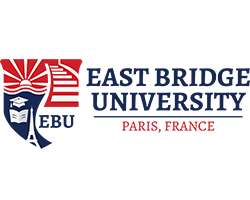How To Ask Questions To Build Community In Preschool?
 When a preschooler starts to learn formally, their journey explores relationships outside families starts to expand. This is a potent time and can be used by educators to encourage building relationships within learners. Asking the right questions can inspire young learners to build a sense of community alongside forming an understanding of the topics they are learning about.
When a preschooler starts to learn formally, their journey explores relationships outside families starts to expand. This is a potent time and can be used by educators to encourage building relationships within learners. Asking the right questions can inspire young learners to build a sense of community alongside forming an understanding of the topics they are learning about.
Questions can be a direct prompt to support their language development, critical thinking and it also stimulates their thought process in creating new ideas. There are several ways to ingrain this sense of community – one way is to ask open-ended questions where there is no right or wrong answer. And the easiest way is by knowing them and by taking an interest in their lives.
We as teachers use questions all the time in the classroom not just to prompt thinking but also to keep learners engaged and motivated, here are 3 ideas you can use to create such an environment – where children can share about each other:
• Circle time at the beginning or end of the school day.
• Pair children to ask and answer the question and vice versa
• Show and tell activity
The teacher can create structure on planning a routinearound students sharing. Especially at the beginning of the school years and even throughout as a part of school activities, with Early childhood Care & Education courses online teachers can practice activities that inspire building relationships.
Top 3 tips on asking the right question to inspire relationships and build community:
Facilitate Group Tasks
Group tasks can amplify children’sinteraction; more so group activities also provide an organic setup for learners to be engaged with each other. Teachers don't need to separately think about how he/they create a situation where learners are talking and asking questions to each other. Theme-based activities – where children have the opportunity to ask and answer personal questions can inspire them to know about each other and create momentum in creating a bond.
Prompt Conversations
Conversational questions can tap into children's prior ideas with what they already know about certain topics. This can bring flow to the conversation and also allow children to carry forward the idea and share their own experiences. it can also be very engaging and preschoolers in their formative age do have the drive to share about what they know, by promoting conversation teachers can inspire conversation and ask meaningful questions to get children to talk about their own experience.
Ask Simple Questions
Elementary school children have just begun to develop their language skills. hence, keep the question simple so they understand and can reply without much hesitation. Avoiding tricky questions can also allow the child to feel connected to the questions. For instance, do you like ice cream? Which is your favorite flavor? And why is that? (followed up questions), these types of questions can build curiosity and also allow other children to think about their own likes and dislike and join the conversation and learn more about each other. Hence, avoid abstract questions, as children may be worried about right or wrong. Keeping the question simple can also promote confidence within children to answer and participate too much in thinking.
The Conclusion
Now more than ever, building a sense of community is absolutely needed in this world. We live in a world that is way diversified and the classroom is no different. When teachers can encourage relationships and community within students, it can bridge the gaps of varied family backgrounds, cultural differences, and many more. This is how children can feel comfortable, confident, and celebrated in the learning environment.
Early Years Care & Education Program can prepare preschool teachers to establish a sense of safety and belonging by inspiring and helping children to form relationships with one another. With that, children can discover new things and learn to relate and coexist in harmony despite their differences. Preschool is one such best time to seed the sense of community to bring togetherness and unity – as this will grow within the child and will certainly enable them to become healthy grownups.





















